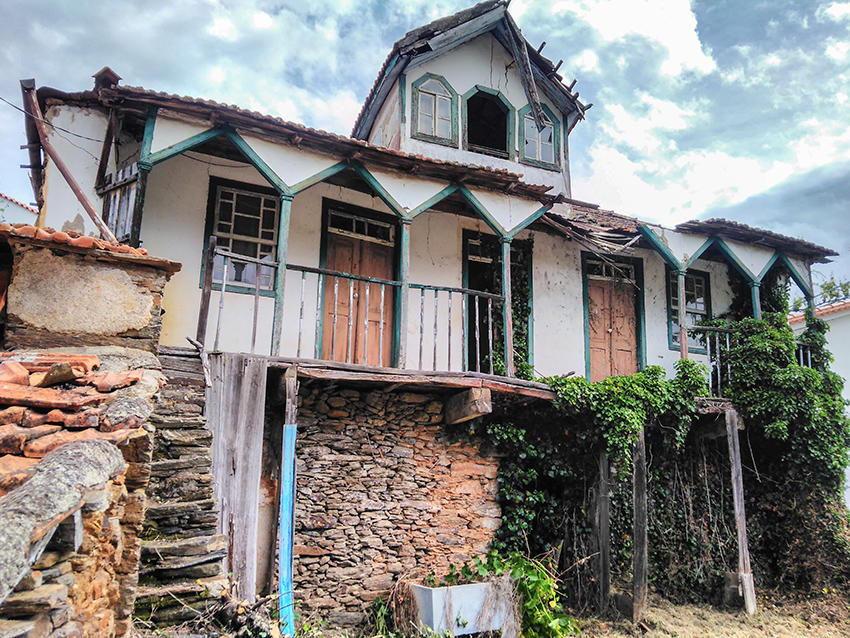The Forgotten Brother
One of the mysteries that shadowed the Monarchy of the North during the Cask War, giving rise to a rural myth, was the Forgotten Brother. When the Battle of LaLys took place in 1918, the Portuguese Expeditionary Corps suffered heavy casualties, including dead, wounded, prisoners and missing people. Heroes also emerge, such as Soldier Millions, who faced the German columns alone in the trench, allowing the safe retreat of the Portuguese and English soldiers.
Soldier Millions, Aníbal Augusto Milhais, who gets his nickname from the praise given to him upon returning to the Portuguese camp, was calmly in his home in Murça when the war between the Monarchy of the North and the Republic of Lisbon began. The immense respect that both parties of the conflict had for the hero of the Great War led to an agreement being signed on September 10, 1919, which established that from the house of Soldier Millions and within a radius of one kilometer around it, it would be considered a Portuguese No Man’s Land in the wine conflict. In practice, it was a neutral micro-country, or an informal embassy, if you like, where the wounded and well-known refugees often sought support while they escaped to one side or another.
This agreement, and the status of Soldier Millions, caused envy and jelousie among neighbors and relatives, albeit in secret. Envy is the most perennial and claimed inheritance in human territory. And slowly, but surely, incidents began to emerge on the edge of the border between the lands of conflict and the house of Millions. In the beginning, they were such simple things that only a subsequent assessment made it possible to identify that it was the beginning of a nightmare.
Small abandoned toys, some pieces of clothing, shoes above all, abandoned and always in a decaying state. But in a chaotic and confusing time, such as times of conflict, they could just be pieces of life and possessions thrown back, as if this were propelling their owners into the future, anyone as long as they are far from the present. Therefore, there was no surprise that there was any damage to these objects. Even the first bloodstains on the damaged dolls or half-complete shoes did not cause much alarm. There was a war.
Maybe that’s why the shock was greater when the messages appeared on pieces of paper roughly nailed to toys and clothes. And on them just a drawing, of a machine gun and barbed wire. Then we began to inventory people, where they were, whether lost or refugees, and worrying results began to emerge with the identification that in addition to victims of war, hunger, chance, there were victims of crime and death.
It didn’t take long for it to be remembered by other survivors of the Portuguese Expeditionary Corps where they had already seen that drawing. One of the English soldiers had shared the story, while they waited in a common camp for the order to return to their respective countries.
“You know, you Portuguese have two legendary soldiers, Millions for having saved so many, and Zero, who destroyed everything, by fatally hitting the enemy and his platoon. In desperation he threw himself onto the wires and was machine-gunned the next day by reinforcements in such a way that nothing was left. And it happened at the same time that Millions saved so many. The following week, dead people began to appear following the escape route of your expeditionary corps, dead who were not from war, as determined. And they always have paper with that design on them.
The Englishman shook his head and concluded: Bitterness and envy make death in life, and life in death. The ghost of Zero doesn’t forgive Millions for being too little for his too much. He won’t stop following you, he won’t stop killing!
 «Casa do Soldado Milhões», website oficial da Câmara Municipal de Murça (https://www.cm-murca.pt/viver/comunicacao/noticias/noticia/casa-do-soldado-milhoes-transformada-num-centro-interpretativo)
«Casa do Soldado Milhões», website oficial da Câmara Municipal de Murça (https://www.cm-murca.pt/viver/comunicacao/noticias/noticia/casa-do-soldado-milhoes-transformada-num-centro-interpretativo)
Entrada original da cronologia winepunk:
1918:
Abril, 9-10 – Batalha de LaLys, onde o Corpo Expedicionário Português sofre pesadas baixas.
Comments